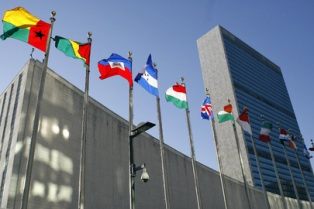 The Intergovernmental Preparatory Meeting is taking place from 26 February to 2 March, prior to the for the 15th session of the Commission on Sustainable Development (CSD-15) which will be held at UN Headquarters in New York between 30 April and 11 May.
The Intergovernmental Preparatory Meeting is taking place from 26 February to 2 March, prior to the for the 15th session of the Commission on Sustainable Development (CSD-15) which will be held at UN Headquarters in New York between 30 April and 11 May.In its statement to the session on Energy for Sustainable Development, Canada reiterated its commitment to the development of innovative energy technologies, including its role in developing Generation-IV reactors. An international task force is developing six highly advanced nuclear reactor technologies for deployment between 2010 and 2030. The Australian statement recognised that there is no single solution to providing low cost, clean energy, and that all options, including nuclear, must be kept open.
Russia called for a balanced approach to all components of the "energy basket" including nuclear as well as new and renewable energy sources. Algeria and Argentina both noted the role of nuclear, and India called for the "demonizing" of nuclear energy and carbon storage to be avoided, as all sources will be required in the future and fossil fuels will remain in use in future years.
However, the Alliance of Small Island States (AOSIS) called for nuclear energy to be phased out as soon as practicably possible, citing the "risks" of the technology.
The United Nations Commission on Sustainable Development (CSD) was established by the UN General Assembly in December 1992 to ensure effective follow-up of the 1992 Rio de Janeiro United Nations Conference on Environment and Development (UNCED), also known as the Earth Summit. The CSD is responsible for reviewing progress in the implementation of Agenda 21, the plan of action to promote sustainable development adopted at the Earth Summit, as well as providing policy guidance at the local, national, regional and international levels. It meets annually in New York, in two-year cycles, with each cycle focusing on clusters of specific thematic and cross-sectoral issues.
Further information
The UN Division for Sustainable Development
WNA’s Sustainable Energy information paper
WNA’s Generation IV Nuclear Reactors information paper














